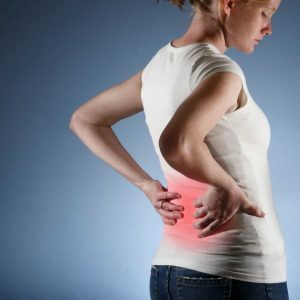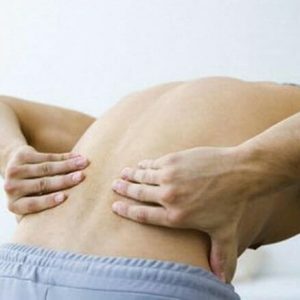Kidney disease - the first symptoms that should not be ignored

Kidney disease manifests itself in a number of signs, it is not always possible to predict their sequence.Kidneys provide the process of releasing harmful substances from the body, thereby causing the normal functioning of all organs and systems.
Table of contents: Common causes of kidney disease Symptoms of kidney problems What kind of doctor should I consult for kidney disease?Common causes of kidney disease
The following factors can lead to damage to the kidney tissues:
- newborns of benign or malignant nature;
- anomalies of intrauterine development;
- infections of bacterial and viral origin;
- autoimmune lesions;
- bad habits;
- metabolic disturbances;
- formation of stones;
- is a sedentary lifestyle.
According to statistics, kidney disease is diagnosed in 3, 5% of the population and more often in women, which is associated with the characteristic structure of female genito-urinary organs. Quite often doctors diagnose:
- pyelonephritis;
- renal failure;
- glomerulonephritis;Kidney cysts and other neoplasms;
- ;
- hydronephrosis;
- urolithiasis.
Symptoms of kidney problems
Kidney disorders can be expressed in the following symptoms:
- General intoxication.It is understood that the patient has severe weakness, fever and a periodic headache.Most often these signs indicate the progression of the inflammatory process in the tissues of the kidneys - for example, with glomerulonephritis or pyelonephritis.
- Edema.Especially often they appear in the morning and indicate that the body does not discharge the liquid in its entirety.It is noteworthy that if the patient has obesity, then swelling will be more pronounced, and the tissue in the area of edema will be loose and excessively white.
-
 Pain in the lower back.This sign can have a different character - aching, cutting, intense, weak.Pain can be present in the entire lumbar region or only from one side( left / right-sided pain), radiating to the upper thigh, groin and pubis.Most often, the pain syndrome is present in acute inflammatory processes, the progression of neoplasms and kidney tuberculosis.But in the case of the presence of a chronic inflammatory process in the tissues of the kidneys, pain is practically absent.
Pain in the lower back.This sign can have a different character - aching, cutting, intense, weak.Pain can be present in the entire lumbar region or only from one side( left / right-sided pain), radiating to the upper thigh, groin and pubis.Most often, the pain syndrome is present in acute inflammatory processes, the progression of neoplasms and kidney tuberculosis.But in the case of the presence of a chronic inflammatory process in the tissues of the kidneys, pain is practically absent.
In some cases, low back pain disturbs the patient only when standing, and in the horizontal position disappear.In this case, the doctors talk about the possible omission of one of the kidneys.
Note: intense pain is present with paranephritis, blockage of the ureter, renal vein infarction and apostematous nephritis.Usually, in such pathologies, along with a painful syndrome, there is a presence of blood or pus in the excreted urine. - Blood in the urine.Urine will resemble the color of meat slops, and with intense physical exertion, this color will be intensely colored.Most often, this symptom is associated with the progression of chronic pyelonephritis, a kidney trauma or a tumor, the presence of stones in the pelvis of the organ under consideration.
- Muddy urine.This sign indicates the development of an inflammatory or necrotic process in the kidneys.Urine does not just become cloudy, in most cases foam forms on its surface, and pus may also be present in it.Muddy urine is one of the characteristic symptoms of hemolysis, an abscess or a kidney tumor.
- Discharge of urine outflow.In this case, the urine is excreted in small portions, literally by drop or a sluggish and intermittent stream.The patient will feel frequent urge to urinate, accompanied by severe pain and cuts in the abdomen.
- Change in volume of excreted urine.If a person is progressing glomerulonephritis or other renal pathologies, this may be indicated by a decrease in the amount of urine released( approximately 500 ml).If the volume of excreted urine decreased by only 50 ml, then this is a symptom of poisons poisoning, development of renal colic, narcotic poisoning.Acute urinary retention.This marked sign, most likely, is provoked by prostate adenoma, but doctors do not exclude the development of a tumor of the bladder, urolithiasis, narrowing of the urethra or ureter.Dry mouth, thirst.
- .Everything is explained simply - too much liquid is drained from the body, which causes thirst.The symptom may indicate the development of many pathologies of the kidneys and urinary tract.
- High blood pressure.If a person has diastolic( lower) pressure and no hypertensive medications normalize the indices, then the presence of pathologies of the renal arteries can be suspected.In addition, with most diseases of the kidneys and urinary tracts, blood circulation in this body system is disrupted, which also leads to an increase in blood pressure.
- Changes from the nervous system.With the development of inflammatory processes in the tissues of the kidneys, a large number of toxins are released into the body.They negatively affect the nervous system, which can manifest as a state of inhibition / drowsiness, short-term loss of consciousness, involuntary urination.
Which doctor should I consult for kidney disease?
Symptoms of pathological kidney damage can be different in intensity, can be present in a variety of combinations.To find out the level of health of the urinary system, you need to undergo a complete examination with a nephrologist or urologist. In the framework of such a survey, the following:
-
 ultrasound examination of urinary organs;
ultrasound examination of urinary organs; - laboratory analysis of urine and blood tests;
- assays for HAP infection;
- excretory urography;
- magnetic resonance imaging of the kidney;
- computed tomography of the kidneys;
- Radiological Investigations.
After the results of the survey are received, the doctor will prescribe competent and effective treatment - you need to undergo a full course of therapy in order to stabilize the kidneys.
If a person has at least one of the above symptoms, he should seek qualified medical help from a urologist or nephrologist. Ignore the signs of kidney pathologies by no means possible, because the course of diseases of the urinary organs is almost always severe, often resulting in complications that involve surgical interventions.
Tsygankova Yana Aleksandrovna, medical reviewer, therapist of the highest qualification category



